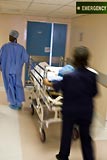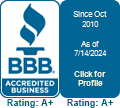
HA-MRSA on the rise. Photo Credit: ©iStockPhoto/ poco_bw
Hospitals are supposed to be places where you get better, not places where you get sick. But hospitals and other healthcare facilities are breeding grounds for contagious Staph, MRSA, C. difficile, and other superbug infections. In fact, 90% of all MRSA infections start in hospitals as Healthcare-Associated MRSA (HA-MRSA).
According to a recent APIC study, 1.2 million hospital patients catch drug resistant Staph infections in the U.S. every year. Patients and visitors alike are at risk of catching these hospital infections. The saddest part is that most of these infections are actually preventable.
Hospital-acquired infections, also called nosocomial infections or healthcare-associated infections, can be reduced and even eradicated when certain steps are taken by visitors, patients and by the hospital itself. Hospitals can reverse and eventually eliminate these infections with effective infection control, antibioitic stewardship programs and by monitoring MRSA treatment and testing. There are also steps you can take to reduce your risks of catching Staph and MRSA or unknowingly taking a superbug home with you.
Tips to reduce your risk
Here are some of the simplest and most effective ways to reduce the risk of HA-MRSA and other hospital infections:
- Frequent hand washing with good old soap and water is one of the best practices if you are visiting or admitted to a hospital or other healthcare facility.
- MRSA and other superbugs hang out on walls, toilets, bed rails, sink surfaces, faucets, furniture and other surfaces. Avoid touching surfaces and objects unless you have to. Also avoid touching your face, mouth, nose and eyes as much as possible. And wash your hands with soap and water after touching things in the hospital, especially before eating or leaving the facility.
- Make sure hospital personnel wash their hands before entering your room and are wearing gloves. High-contact surfaces and objects, such as stethoscopes, should be sanitized before touching you. Some hospitals and facilities are better at consistent hygiene, cleaning and infection control than others.
- Keep children at home. Children crawl on the flood, touch everything and put things in their mouths. Children also have less developed immune systems and are more at risk of infections. So the hospital is the last place you may want to bring your children.
- Support your immune system with proper diet, supplements, maintenance levels of antimicrobial herbs and other steps to keep your natural defenses strong.
It’s encouraging that you can reduce your risk of HA-MRSA and other superbugs with a few simple steps. It’s up to all of us to be aware of the risks and do what we can to protect ourselves and our families.
To your health,
Michelle
Microbiologist, Natural Health Expert





